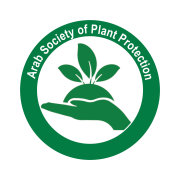The International Plant Protection Convention(IPPC) is a 1951 multilateral treaty overseen by the United Nations Food and Agriculture Organization that aims to secure coordinated, effective action to prevent and to control the introduction and spread of pests of plants and plant products. The Convention extends beyond the protection of cultivated plants to the protection of natural flora and plant products. It also takes into consideration both direct and indirect damage by pests, so it includes weeds. The Convention created a governing body consisting of each party, known as theCommission on Phytosanitary Measures, which oversees the implementation of the convention. As of August 2017, the convention has 183 parties, which includes 180 United Nations member states, the Cook Islands, Niue, and the European Union. [1]The convention is recognized by the World Trade Organization's (WTO) Agreement on the Application of Sanitary and Phytosanitary Measures(the SPS Agreement) as the only international standard setting body for plant health.
While the IPPC's primary focus is on plants and plant products moving in international trade, the convention also covers research materials, biological control organisms, germplasm banks, containment facilities, food aid, emergency aid and anything else that can act as a vector for the spread of plant pests – for example, containers, packaging materials, soil, vehicles, vessels and machinery.
The IPPC was created by member countries of the Food and Agriculture Organization. The IPPC places emphasis on three core areas: international standard setting, information exchange and capacity development for the implementation of the IPPC and associated international phytosanitary standards. The Secretariat of the IPPC is housed at FAO headquarters in Rome, Italy, and is responsible for the coordination of core activities under the IPPC work program.
In recent years the Commission of Phytosanitary Measures of the IPPC has developed a strategic framework with the objectives of:
- protecting sustainable agriculture and enhancing global food security through the prevention of pest spread;
- protecting the environment, forests and biodiversity from plant pests;
- facilitating economic and trade development through the promotion of harmonized scientifically based phytosanitary measures, and:
- developing phytosanitary capacity for members to accomplish the preceding three objectives. By focusing the convention's efforts on these objectives, the Commission on Phytosanitary Measures of the IPPC intends to:
- protect farmers from economically devastating pest and disease outbreaks.
- protect the environment from the loss of species diversity.
- protect ecosystems from the loss of viability and function as a result of pest invasions.
- protect industries and consumers from the costs of pest control or eradication.
- facilitate trade through International Standards that regulate the safe movements of plants and plant products.
- protect livelihoods and food security by preventing the entry and spread of new pests of plants into a country.


